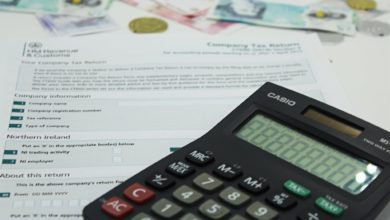
The COVID-19 pandemic has impacted the world economy in profound ways, and governments are coming up with solutions to keep their respective countries afloat. In a union with disparate members, this can be a tough call; it becomes even more complicated when there are varied opinions on whether to bail out companies that operate in financial grey areas.
The European Union is at a standstill regarding the issue of bailing out companies registered in countries known for being tax havens. A number of governments like France, Poland, and Denmark have refused to grant support, while others like Belgium, Ireland, and the Netherlands are reluctant to follow suit.
The idea of simply refusing to provide for companies that use tax havens is attractive; however, the results will be far-reaching and complicated. In the meantime, governments can look at some features of companies and their activities to guide decision-making regarding bailouts.
Checking for subsidiaries located in certain jurisdictions
If the company has offices in one of the top ten jurisdictions on the Financial Secrecy Index or the Corporate Tax Haven Index, they must publish a full, country-by-country report at the end of 2020 detailing the legitimacy of their business activities in the area. They must make clear how their operations are not used for reducing tax obligations.
Governments that want to crack down on companies that are tax havens will favour the Financial Secrecy Index and the Corporate Tax Haven Index, instead of the EU’s non-cooperative blacklist. This is because the former are more stringent, and cover more forms of financial secrecy services.
If a business is found to be operating in these jurisdictions for illegitimate reasons, they will not receive bailouts. The detailed report must be provided by the end of 2020 and should meet the Global Reporting Initiative’s Tax Standard.
A review of whether the company had figured in tax scandals
Participation or implication in financial tax scandals such as LuxLeaks or CumExFiles will disqualify a corporate group from a bailout. If the company receives unauthorised public assistance, such as unlawful state aid, they can also be barred from receiving a bailout.
Examination of transparency in legal information
The corporate group should have open records on its corporate structure, beneficial and legal owners, and all legal vehicles. They should also have published online all recent accounts for legal entities, in line with the GRI’s standards. Countries can make this a condition for companies to receive a bailout. Corporate groups that fail to comply by 2020 will have to return the bailout money they received.
Checking for employee protection policies
The group should have committed to not fire employees who must be self-quarantined or hospitalised. They should pay a living wage for staff, and not initiate shareholder extractions until rescue loans are paid back in full, or until profitability or insolvency. A company that had received bailout money should also not distribute dividends, buy back share capital, convert shareholder equity into bonuses before it has paid back rescue loans.
Conclusion
The global spread of the coronavirus and the havoc it has wreaked in global commerce is forcing countries to take a good, hard look at how the current tax system is helping or hurting individuals. Corporate groups should take note of these guidelines and others that might be crafted in response to the pandemic.
For more insights in business and finance, read our online news at Accountancy Today.








